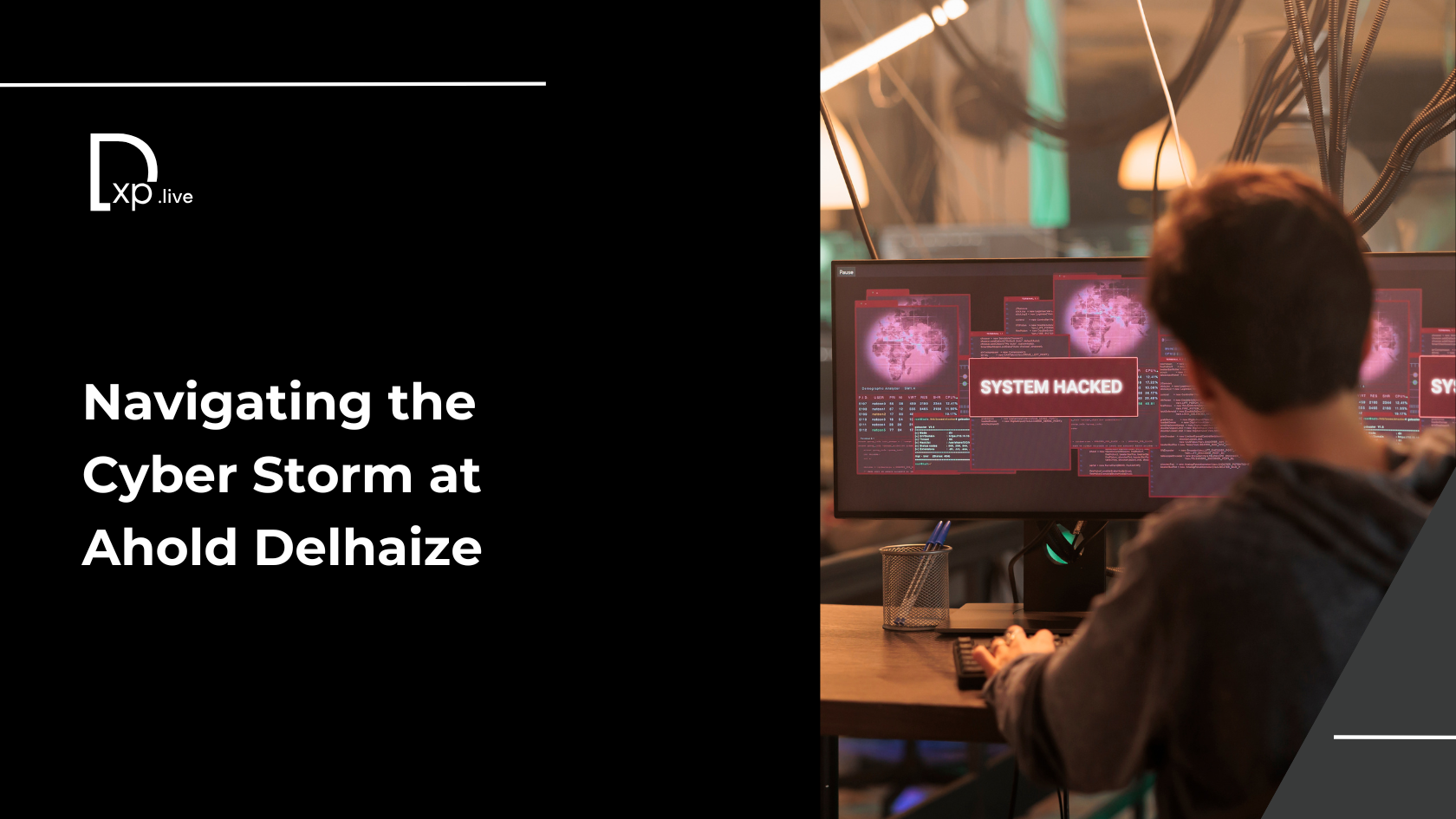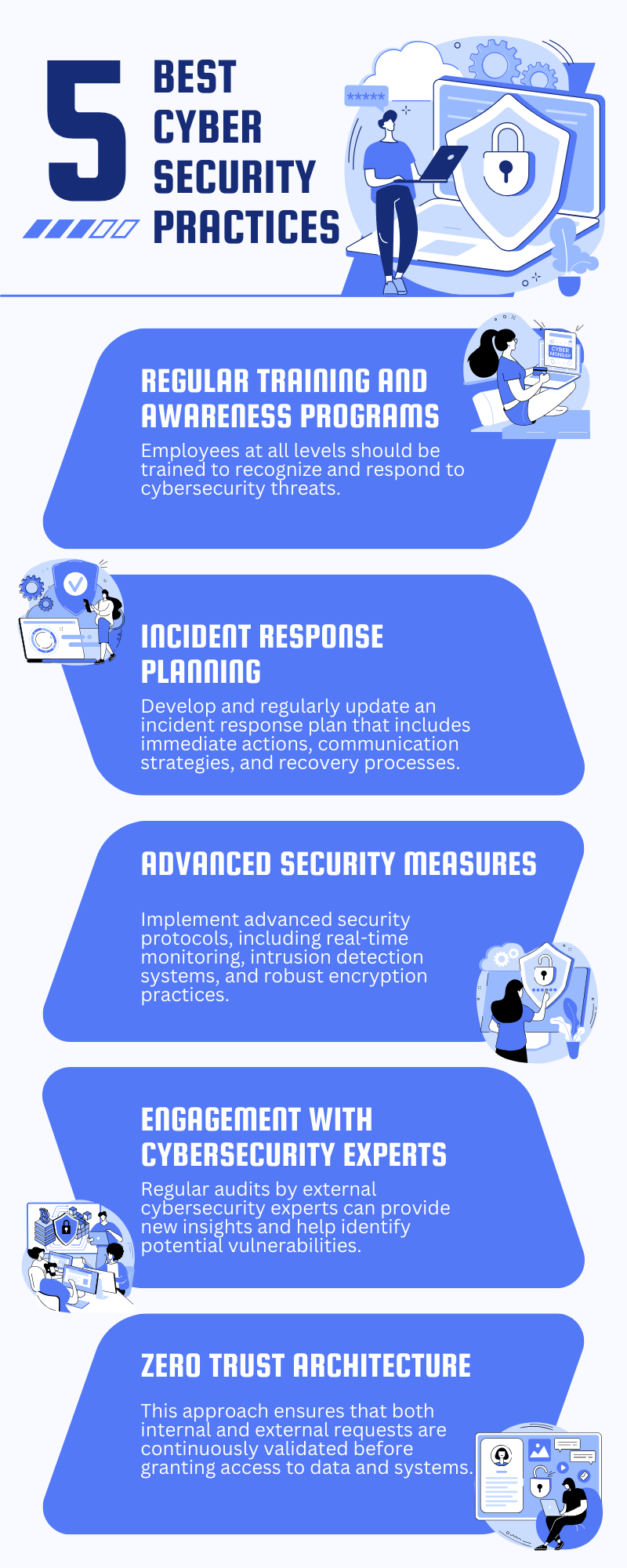Navigating the Cyber Storm at Ahold Delhaize

The recent cyberattack on Ahold Delhaize’s U.S. operations is a reminder of the ongoing vulnerabilities in the retail sector's cybersecurity frameworks. With its slim margins and high volume, the grocery sector cannot afford the reputational or operational damage that comes from such cybersecurity breaches.
The Event That Shook a Retail Giant
Recently, Ahold Delhaize, a leading grocery conglomerate, experienced a significant cyberattack across its U.S. operations. This disruption, which affected various pharmacies and key e-commerce services, forced the company to take critical systems offline, impacting customer transactions and access to services. As reported, the company detected a cybersecurity issue within its U.S. network and responded by collaborating with external experts, notifying authorities, and attempting to mitigate the damage. While physical stores remained operational, the interruption to online services left many customers inconvenienced, highlighting the vulnerability of even well-established retail networks.
The Immediate Fallout of Ahold Delhaize's Cyberattack
In the face of the cyberattack, Ahold Delhaize faced a dual challenge: managing the immediate operational issues and maintaining customer trust. Hannaford, one of its prominent U.S. brands, saw its e-commerce platform go offline, with disruptions continuing into the following week. As systems went down, the company struggled to maintain its online and pharmacy services, a critical blow during the busy lead-up to the winter holidays.
In a statement released last Friday, Ahold Delhaize disclosed a "cybersecurity issue" within its U.S. network, leading to the shutdown of certain systems and affecting operations just as the winter holiday season approaches—a crucial period for any retailer. The timing of this cyberattack could not be more troubling, emphasizing the potential for substantial financial losses and diminished consumer trust. The disruption extended to some of Ahold Delhaize's major brands, including Hannaford, whose e-commerce services remain paralyzed, affecting countless customers and business operations alike.
Why Cybersecurity Matters More Than Ever
The cyberattack on Ahold Delhaize is a stark reminder of the fragility of digital infrastructures in the retail sector. In an era where digital transactions are the norm, the security of these systems is paramount. Cyber threats are becoming more sophisticated, making it imperative for companies to continuously evolve their cybersecurity measures. For retailers, protecting customer data is not just about avoiding financial losses but also, about preserving trust and credibility.
This incident also highlights the need for stricter regulations regarding cybersecurity in the retail sector. As businesses increasingly rely on digital networks and e-commerce, the potential for cyberattacks grows. Legislators need to step in and establish clear guidelines and standards for cybersecurity, ensuring that companies are held to account and that the infrastructure is in place to protect against and respond to cyber threats effectively.
Moreover, there is an urgent need for transparency in how companies like Ahold Delhaize handle these crises. Customers and stakeholders deserve to know what measures are being taken to secure networks and personal data. This transparency not only helps to maintain trust but also strengthens a company's stance against potential threats by demonstrating awareness and proactive measures.
Best Practices for Enhancing Cyber Resilience
In the aftermath of the attack, Ahold Delhaize must reassess its cybersecurity strategies. This incident proves that cybersecurity is not a broad organizational concern that requires integrated strategies and proactive leadership. The recent leadership changes within Ahold Delhaize's IT department underscore the need for stability and expertise in these critical roles. Moving forward, ensuring robust and resilient cybersecurity measures will be crucial in safeguarding against future threats.
For Ahold Delhaize and similar companies, enhancing cyber resilience should be a top priority. This involves more than just upgrading technology; it requires a cultural shift towards comprehensive cybersecurity awareness across all levels of the organization. Best practices include:

- Regular Training and Awareness Programs: Employees at all levels should be trained to recognize and respond to cybersecurity threats.
- Advanced Security Measures: Implement advanced security protocols, including real-time monitoring, intrusion detection systems, and robust encryption practices.
- Incident Response Planning: Develop and regularly update an incident response plan that includes immediate actions, communication strategies, and recovery processes.
- Engagement with Cybersecurity Experts: Regular audits by external cybersecurity experts can provide new insights and help identify potential vulnerabilities.
- Zero Trust Architecture: Adopt a Zero Trust security model that operates on the principle of "never trust, always verify." This approach ensures that both internal and external requests are continuously validated before granting access to data and systems. By implementing strict access controls and not assuming trust based on network location, businesses can significantly reduce the risk of unauthorized access.
The Path Forward
The Ahold Delhaize incident teaches us that in the digital age, the question is not if a cyberattack will occur, but when. This makes it imperative for companies to build robust defenses and foster a culture of continuous improvement in cybersecurity practices. As we move forward, the focus must be on developing more resilient digital infrastructures that can not only withstand attacks but also adapt and evolve in the face of new threats.
The Ahold Delhaize cyberattack is a call to action for all stakeholders in the retail industry to prioritize and enhance cybersecurity measures. It’s a reminder that in our interconnected digital world, the security of one is the security of all. As consumers, it's crucial to stay informed and hold corporations accountable for protecting our data.
Are you concerned about how secure your data is when shopping online?
Sign up for our newsletter for updates on cybersecurity best practices and learn what steps you can take to protect your personal information. By staying informed and proactive, we can collectively enhance our defenses against the cyber threats of tomorrow.
FAQs
1. What caused the recent cyberattack on Ahold Delhaize’s U.S. operations?
The exact cause hasn’t been disclosed, but Ahold Delhaize identified a cybersecurity issue within its U.S. network and is working with experts to investigate and address the disruption.
2. Which services were affected by the Ahold Delhaize cyberattack?
The attack impacted certain systems, affecting some pharmacies and e-commerce services, with Hannaford's online and app-based services experiencing the longest outages.
3. How is Ahold Delhaize responding to the cyberattack?
Ahold Delhaize has taken affected systems offline, engaged external cybersecurity experts, and notified authorities. They are working to restore full services safely and efficiently.
4. Are Ahold Delhaize’s physical stores still open during the cyberattack?
Yes, all Ahold Delhaize U.S. stores remain open, accepting most payment methods, although some pharmacies have limited phone service availability.
5. What cybersecurity steps is Ahold Delhaize implementing moving forward?
While specifics aren’t provided, Ahold Delhaize is likely enhancing its cybersecurity protocols, involving expert consultation, and focusing on a secure restoration of online services.




